Reflecting on My Laidlaw Experience: Embracing the Learning Curve, From Research to Rural Vietnam
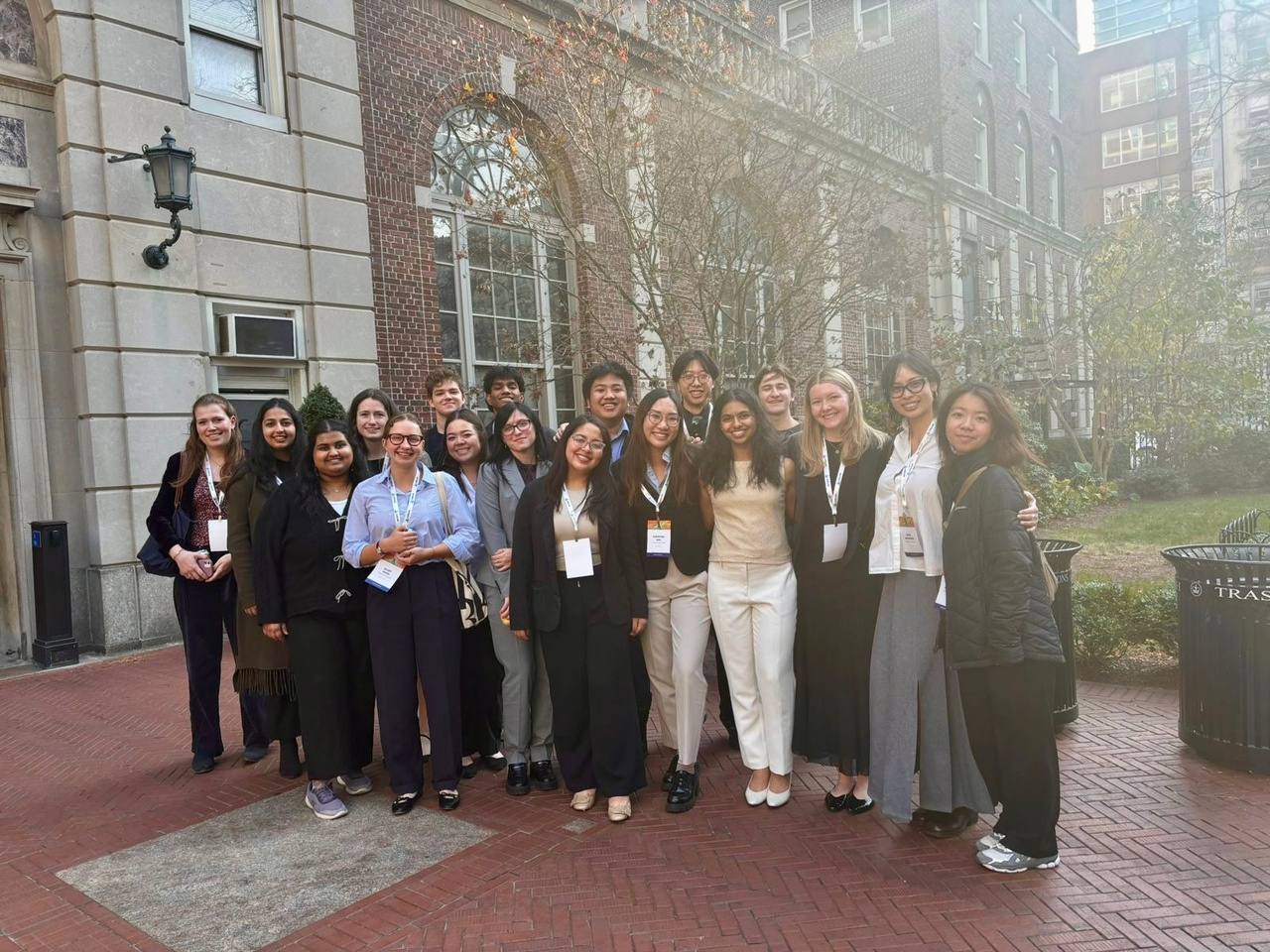
Laidlaw Scholars End-of-Programme Reflection![]()
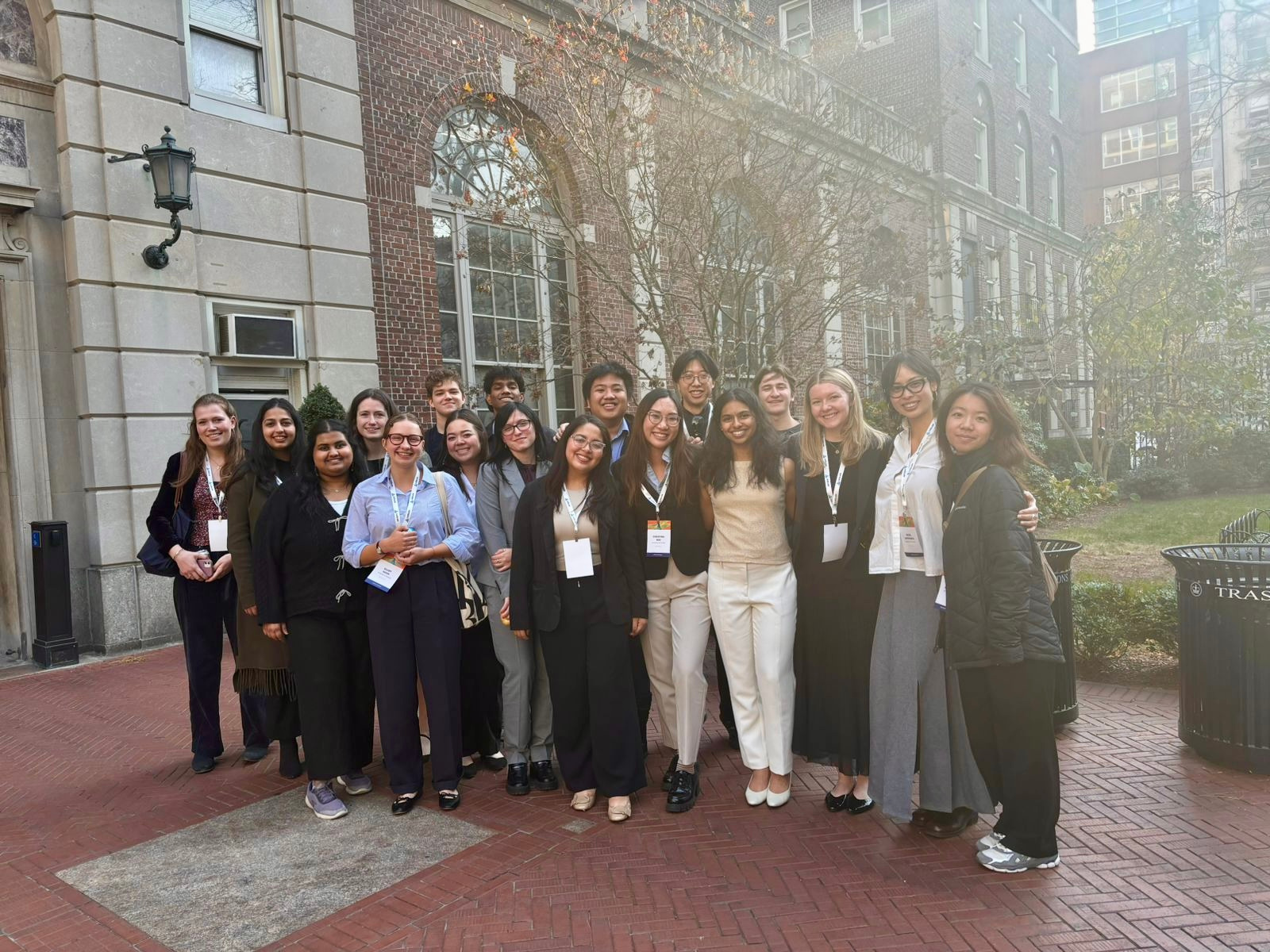
The Journey That Exceeded Every Expectation!
When I first applied to the Laidlaw Scholar program, I thought I was signing up for a research program with some leadership training. What I got instead was a transformative experience that challenged my assumptions about leadership, research, and my own capabilities.
My summer research project pushed me far outside my comfort zone. As a political science student with limited coding experience, I decided to learn sentiment analysis of Parliamentary debates on abortion rights. The learning curve was steep and I spent countless hours in Stanford's Green Library, de-bugging, pouring through the databases on Statistics Canada and learning natural language processing workflows. But those struggles taught me something I hope to carry forward - leadership often means having the courage to be completely clueless at something before you get better at it. When my initial hypothesis about federal health transfers didn't pan out due to lack of data, I had to reimagine my entire project. I learned to embrace the opportunity for growth, question assumptions, acknowledge limitations, and pivot gracefully.
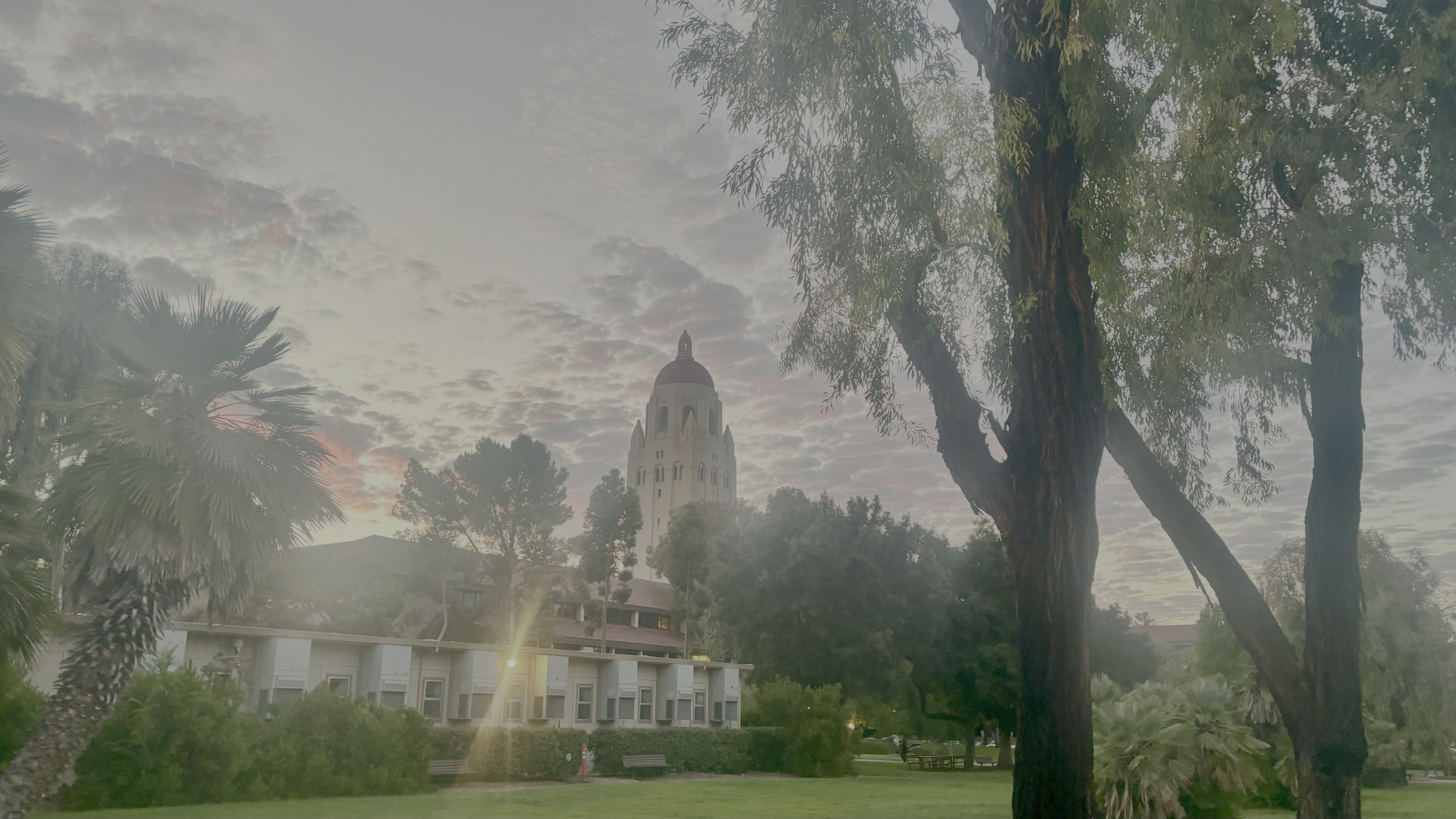
The leadership development sessions became unexpected highlights of my journey. I still think about that conflict management workshop, sitting by the side of Philosophers' Walk, learning about the area’s Indigenous history and discussing various conflict resolution models. Perfect timing too (!), because I immediately saw the connections to my current projects and applied those techniques to better understand the situation. Our coordinator You Jia and workshop facilitator Cam created such thoughtful experiences. Even the colouring sheets provided throughout and practical activities during workshops showed how much care went into every detail. These weren't just sessions: they were intentionally designed opportunities for self-exploration and capacity development. When the semesters got rough, I was very grateful for the support, encouragement, and empathy from the Laidlaw Scholars team. To the team, thank you so much for your guidance, encouragement, and understanding throughout the semesters.
Meeting Brilliant Minds Across Disciplines
The Laidlaw community broadened my horizons in incredibly meaningful ways. At the annual North American scholars’ conference in New York, I found myself in breakfast line conversations with engineering students addressing climate challenges, humanities researchers exploring Indigenous languages and policy development in the USA, and pre-med students creating innovative health solutions. These interdisciplinary conversations enriched and broadened the knowledge I was building in my political science studies.
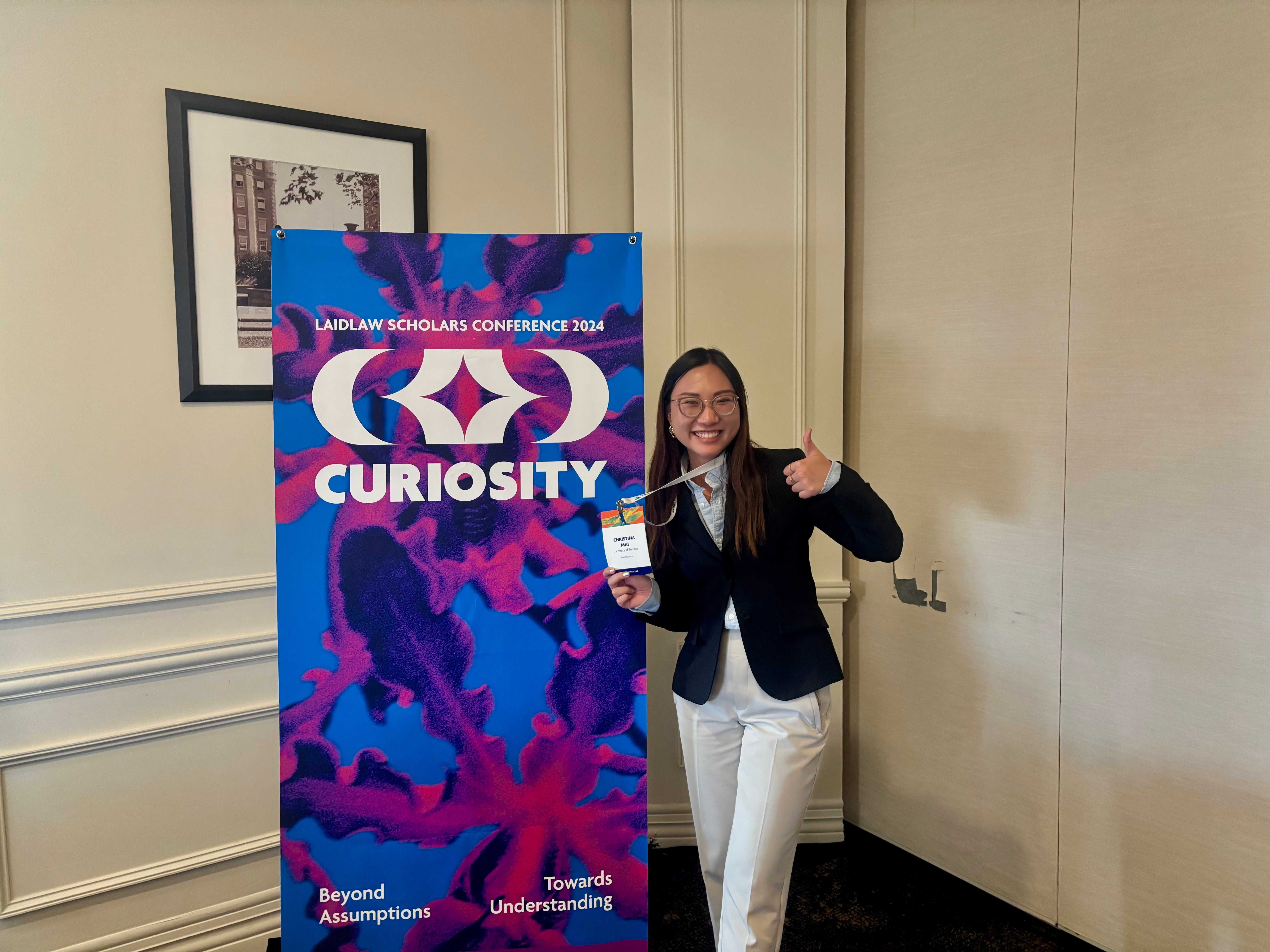
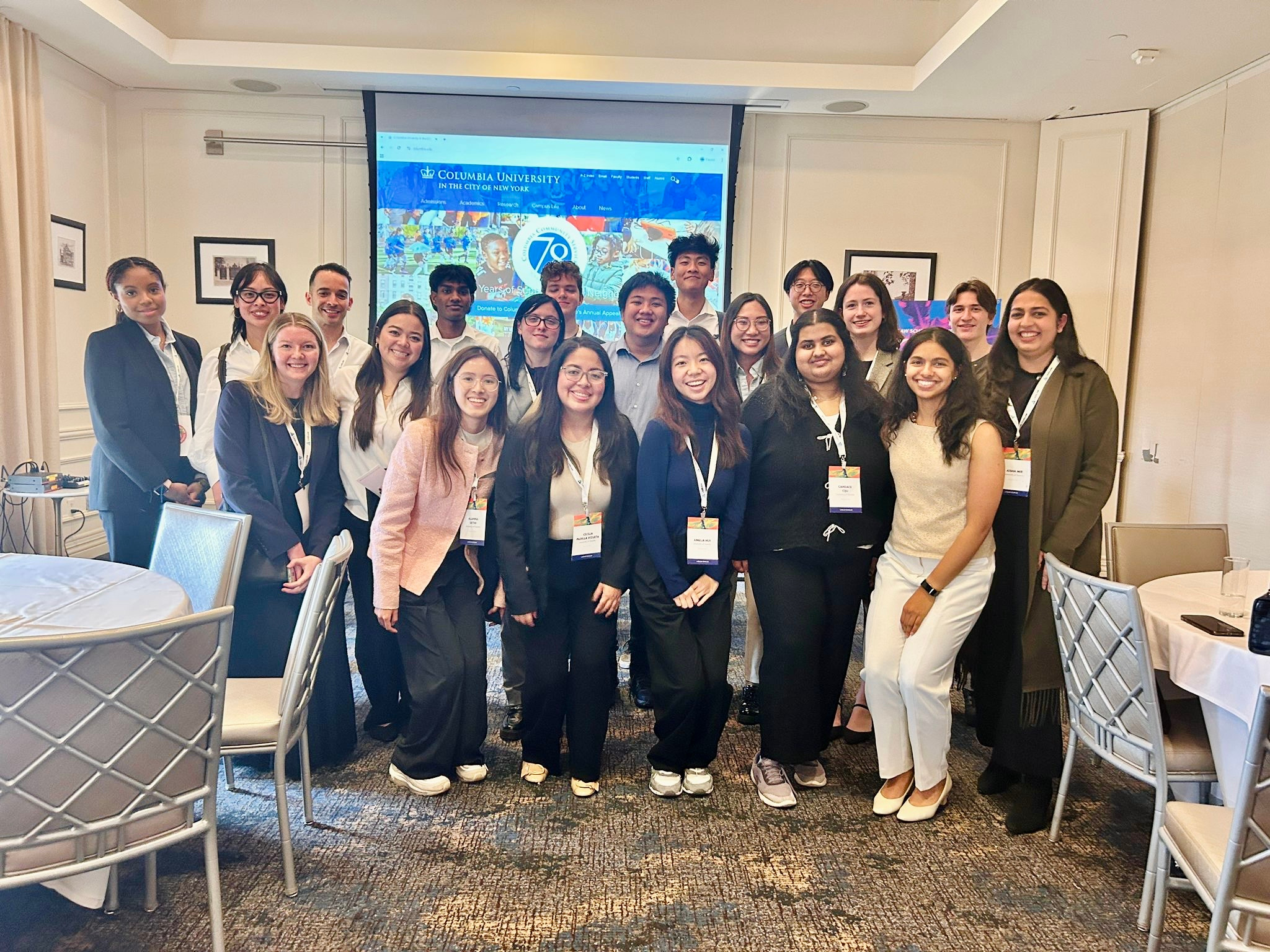
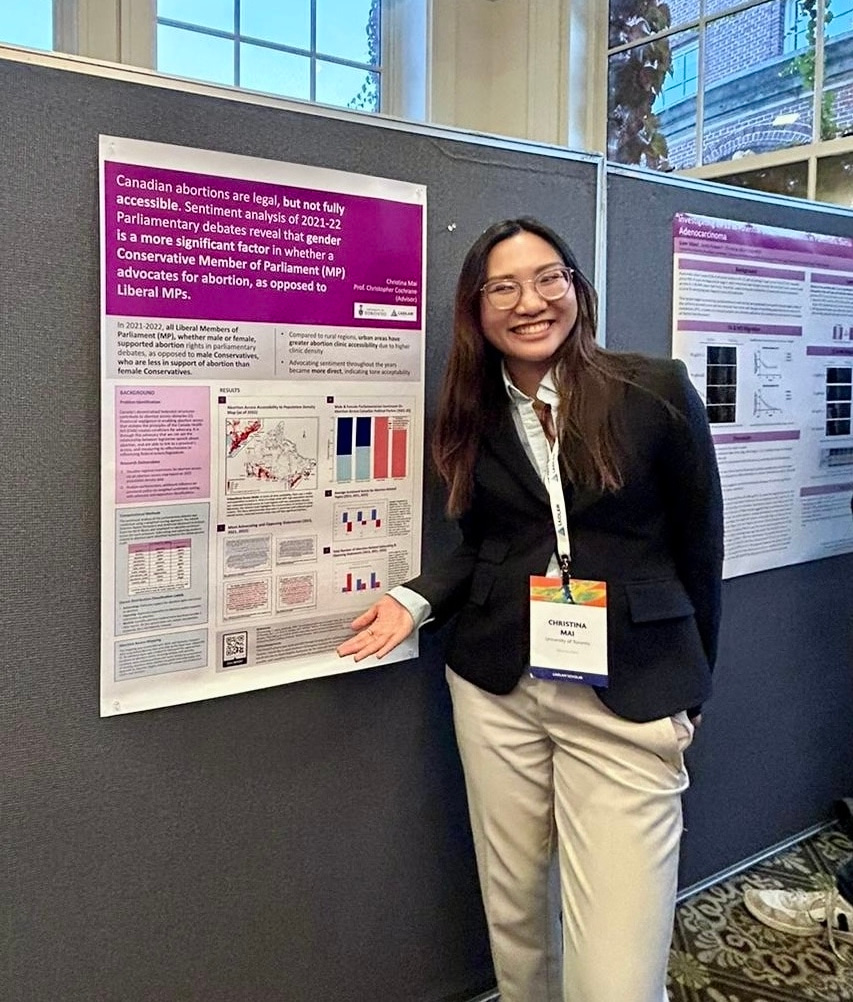
My research supervisor, Professor Cochrane, taught me that good mentorship transcends time zones and distance. Even while I was at Stanford, he made our bi-weekly virtual meetings count, helping me navigate both technical challenges and bigger questions about research ethics and impact. He understood and guided me through my struggle working with computational methods as a non-technical student, and the lessons of humility and persistence that came with it. Every error message, every failed model iteration, every late-night debugging session built not just technical skills but resilience. I learned that wisdom isn't about always having all the answers, but rather asking better questions and knowing when to seek expertise from others.
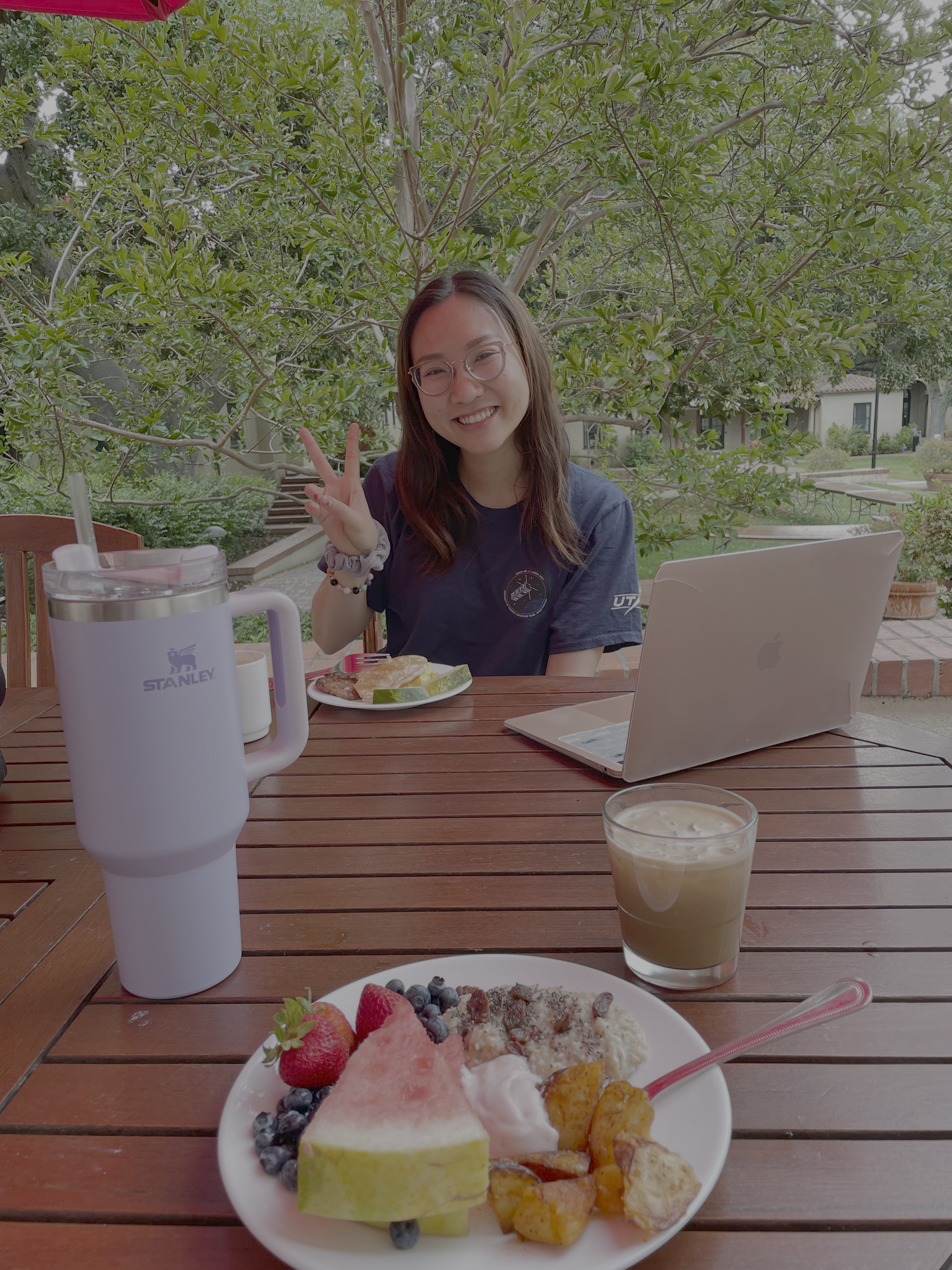

In Vietnam, I had the privilege of working with Queenie Ngo from the Organization of Anonymous Contributors who introduced me to my local coordinator Tri Ngo. His collaborative approach to leadership was inspiring. I observed how he intentionally engaged with various stakeholders including government representatives, school administrators, and community members, always prioritizing the needs of the community while respecting established protocols and relationships. This experience taught practical leadership in a way that perfectly complemented my theoretical understanding gained from the prior leadership trainings with Laidlaw.
Discovering My Leadership Style
Through Gallup StrengthsFinder and the Oxford Character Project, I discovered my leadership strengths lie in executing and strategic thinking. But importantly, I learned about my growth areas. The IDI assessment revealed I tended to focus on similarities across cultures while missing important differences. The insight from this assessment provided awareness about developing cross-cultural leadership skills and became an important focus during my time in Vietnam, significantly influencing my approach.
With my time in Vietnam, I experienced a learning curve in cross-cultural communication, gaining appreciation for the nuanced, more relationship-focused communication styles prevalent in Vietnamese culture. I learned that effective collaboration meant a placing a priority on cultural understanding over technical expertise. When we faced technical challenges with computers or tool access, we collaboratively developed alternative teaching approaches focused on demonstration. We remained responsive to community needs, altering the curriculum, incorporating English lessons and lengthening teacher workshops when requested. This adaptability proved to be one of the most valuable skills I developed during my time there.
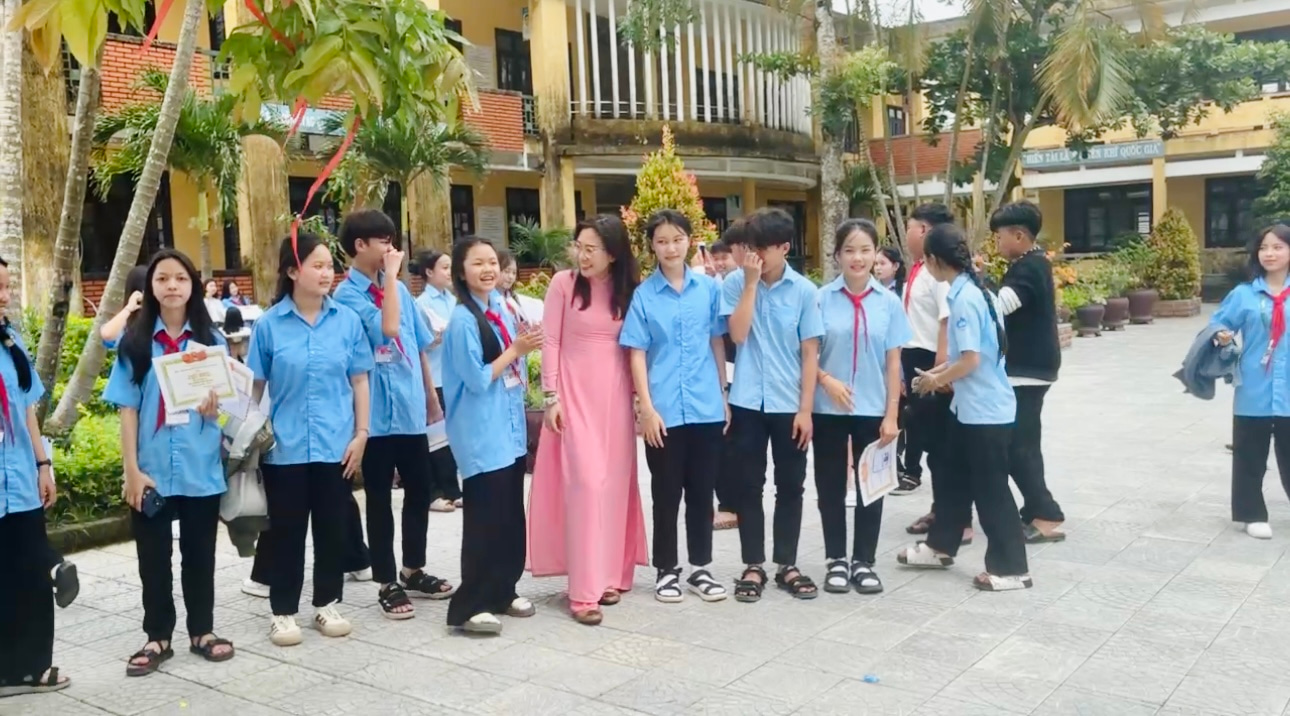
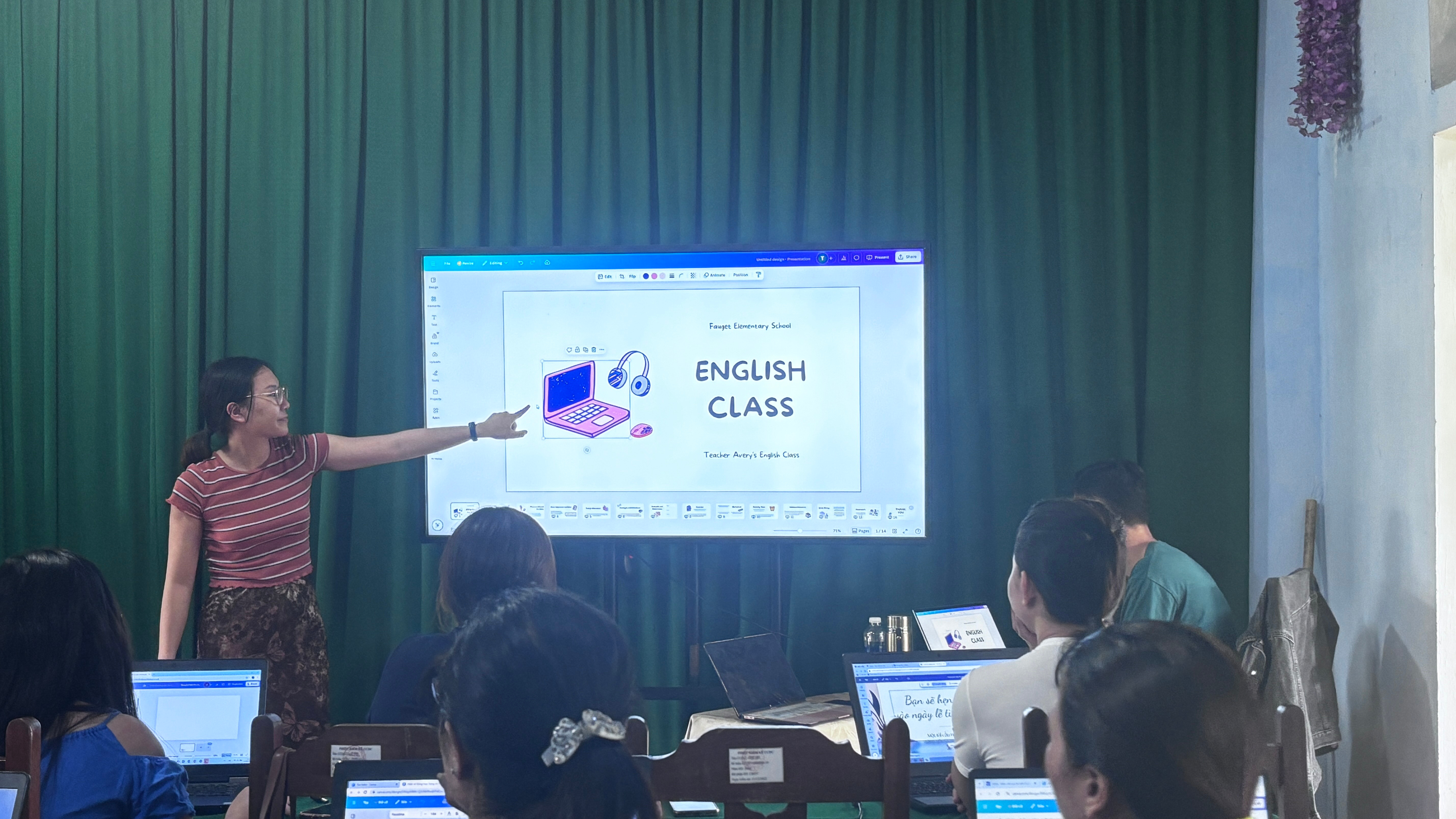
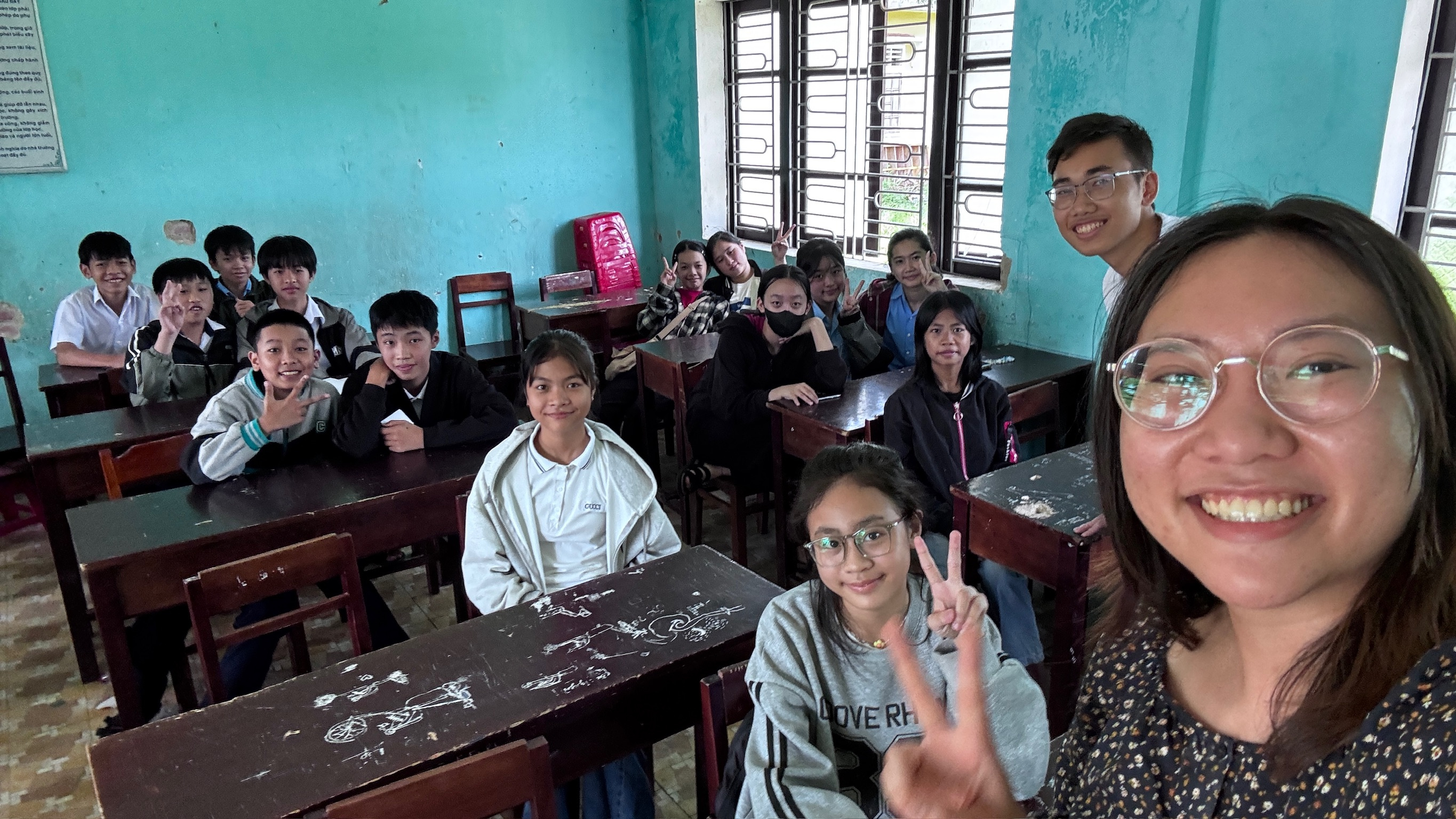
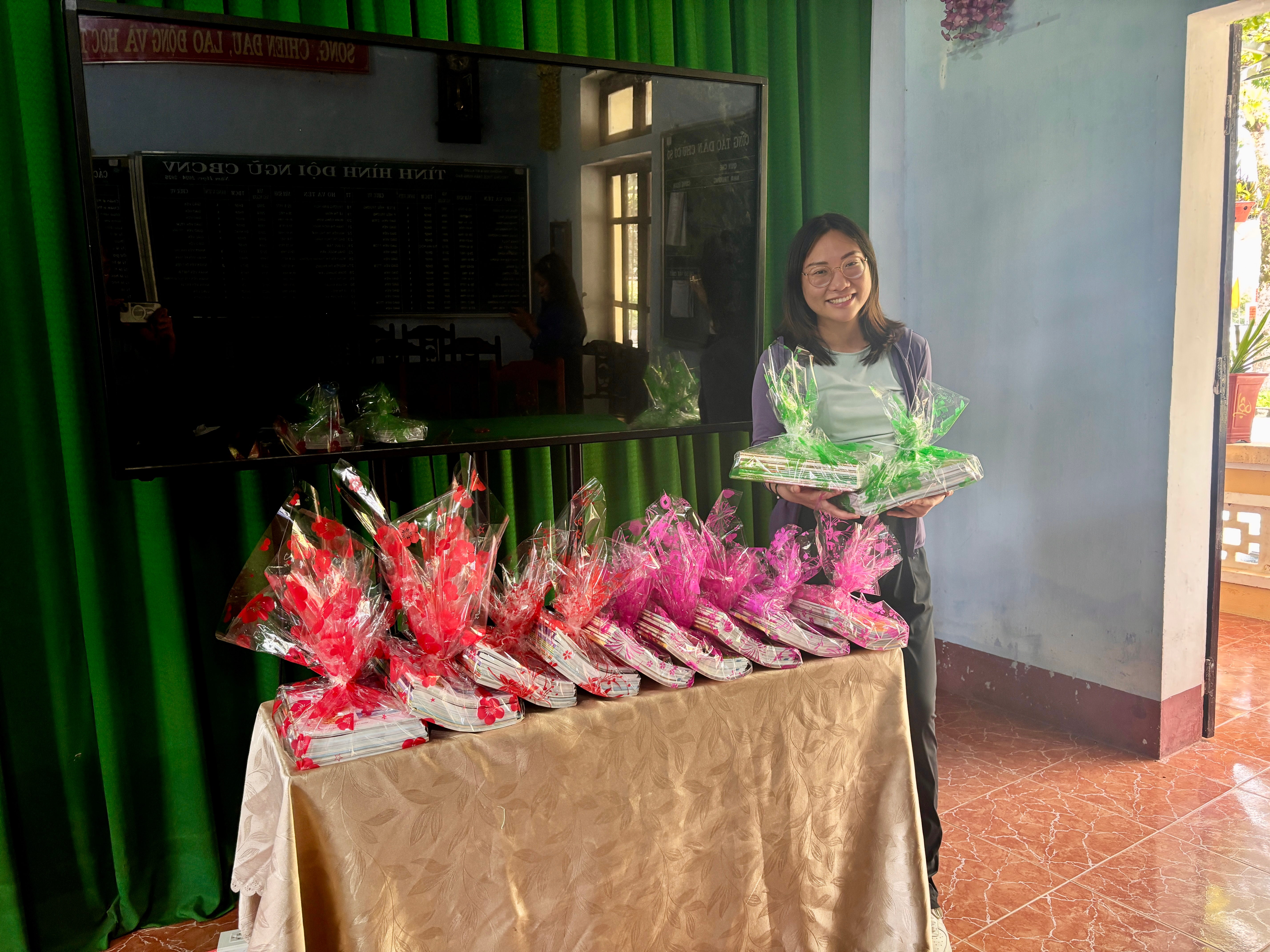
The Oxford Character sessions on Accountability and the virtues hit close to home for me. Working across time zones, managing multiple projects, and coordinating with stakeholders in three countries challenged me to level up my organizational skills. I learned to quickly systems, communicate proactively (something I am still to this day, working on), and most importantly, learned to ask for help when needed. Having a space to check-in on the progress with my work on Virtuosity was so useful, and I often found myself thinking about what are some ways I can mitigate Accountability vices. These are all things I continue to work on to this day, and I am grateful for the tools provided by the program to help us improve as both leaders and human beings.
Translating Experience into Impact: The Road Ahead
If I had to describe the Laidlaw Scholars Program's value in one long sentence to my younger self, it would be: "Laidlaw Scholars is a program that shows you what you're capable of when you combine rigorous research with purposeful leadership and genuine connections in a multidisciplinary space."
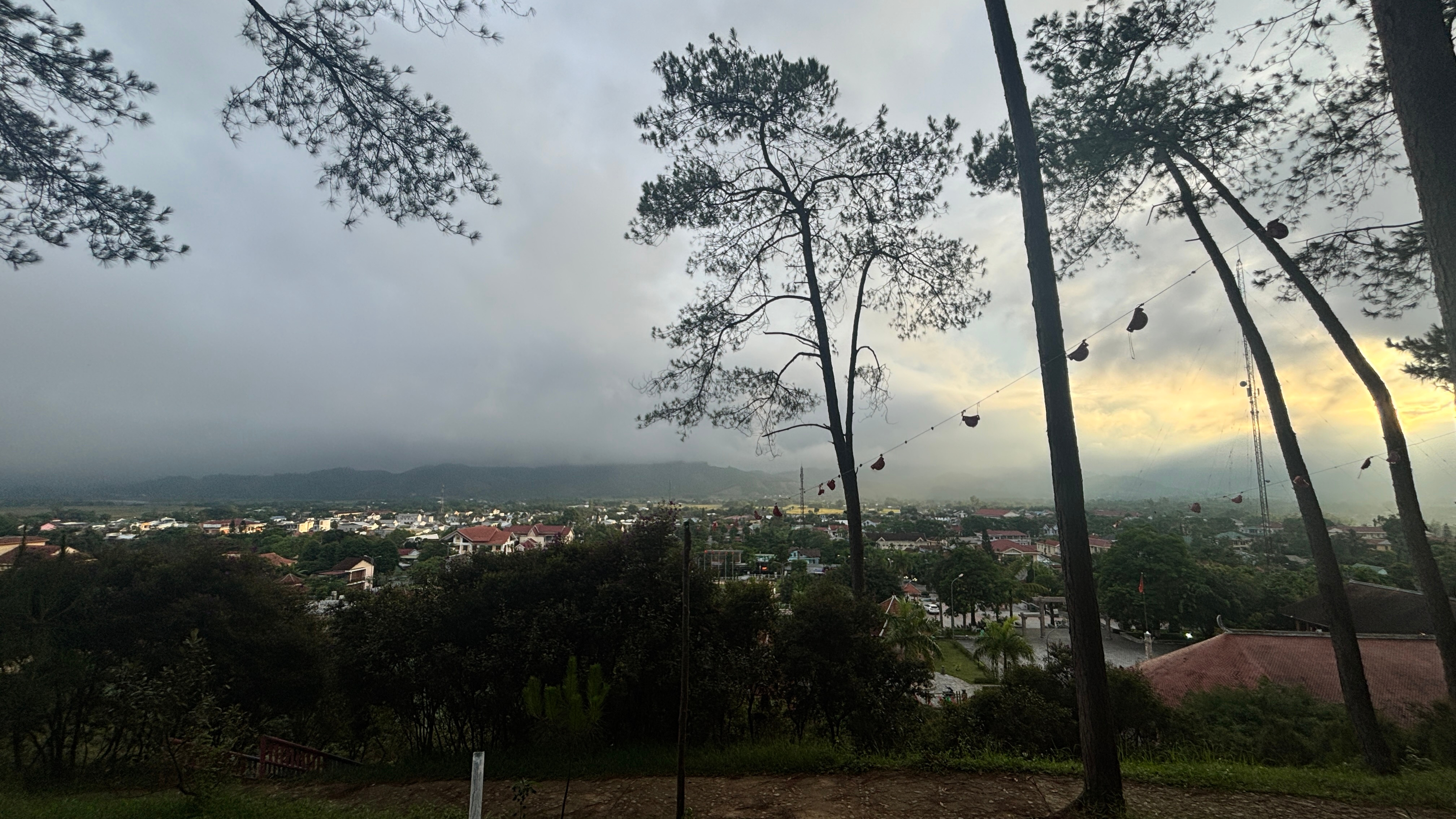
Pictures from A Lưới 5/5: Sunset view from the top of the hill overlooking A Lưới's community centre
In the next three years, I plan to pursue law and graduate school while continuing computational social science research. My biggest confidence booster? Knowing I can learn anything if I approach it with humility and persistence and have the courage to grow from limited competency. A hesitation I do have is the sheer scope of challenges ahead, but Laidlaw taught me that big challenges require collaborative, interdisciplinary solutions. For future employers or grad schools, I now confidently speak to working at the intersection of technical and more humanistic approaches. However, at the same time, I intend to maintain a student mentality and provide the space and self-trust needed to learn and adapt to dynamic environments. The Laidlaw Scholars Network remains a resource I'll tap into throughout my career. The connections I've made, from my "Laidlaw Survival Group" (shoutout to Tyler, Caroline, Elliot, and Nathan!) to scholars worldwide, are a community I can turn to for advice and inspiration.
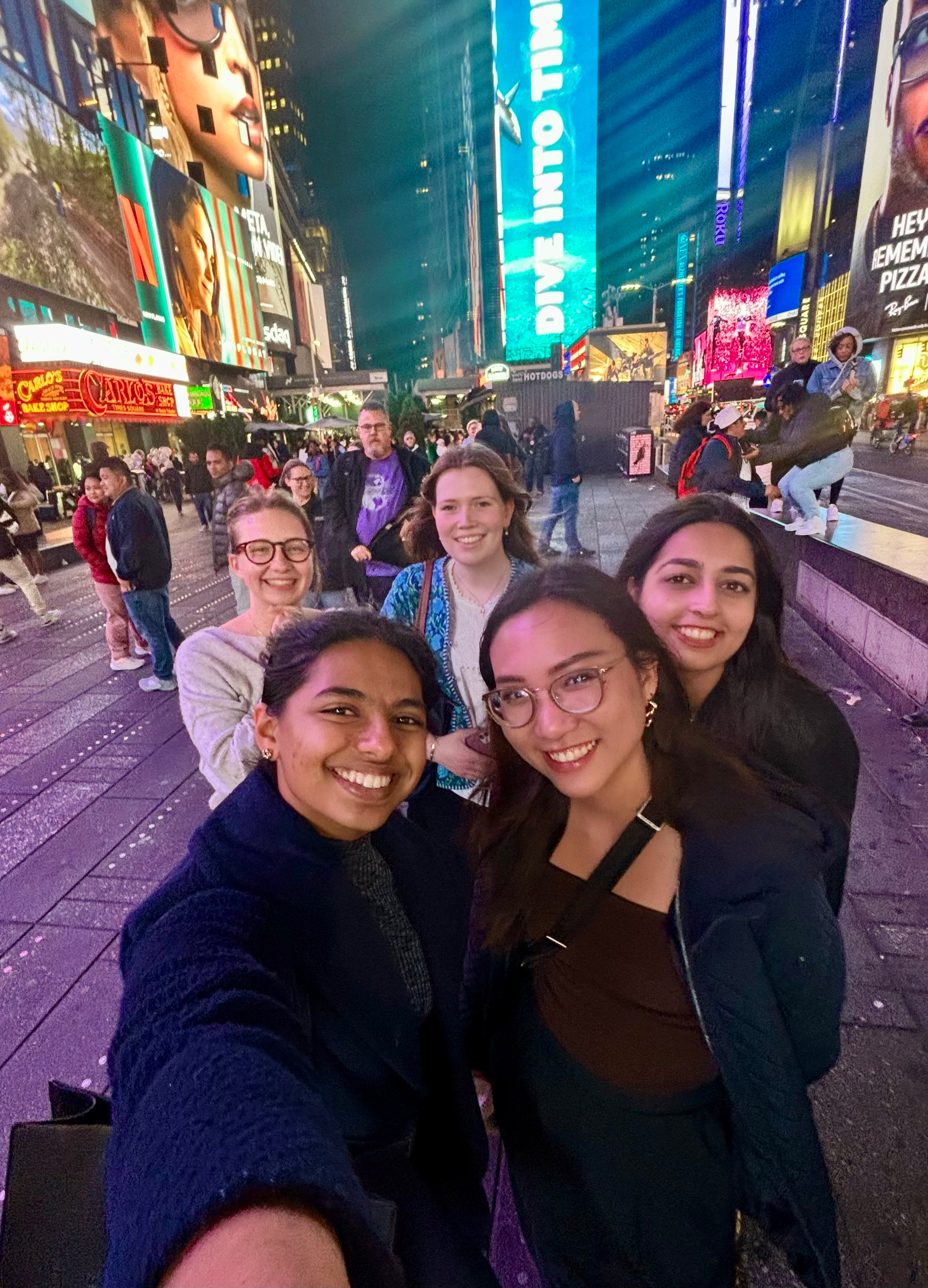
As I close this chapter, I carry forward not just skills and knowledge, but a commitment to the Laidlaw values of leadership, research, and global citizenship. To the Laidlaw Foundation, the University of Toronto team (especially You Jia!), my mentors, and fellow scholars: thank you for believing in my potential and for the opportunity to learn and grow. To future scholars: embrace the discomfort and please trust yourself. The moments when you feel most out of your depth - whether it's coding your first Python script, navigating cultural differences, or presenting at the international stage - those are the moments you're growing most. Every challenge is an invitation, every failure is data, and every connection is a doorway to new understanding.
Acknowledgements: I would like to thank the Laidlaw Foundation, my LiA project advisor Queenie Ngo and my partner NGO the Organization of Anonymous Contributors (OAC), and the University of Toronto Laidlaw Scholars Programme for their generous support, guidance, and encouragement throughout the development and completion of this project.
Note on photos: The photos included in this blog were taken with the permission of Trường THCS Trần Hưng Đạo and its leadership. Consent was granted by the school administration for the use of these images in deliverables associated with the Laidlaw Scholars Programme. In addition, photos taken with the Laidlaw Scholars 2024 cohort were taken with consent for use in deliverables.
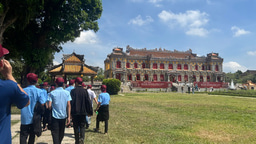
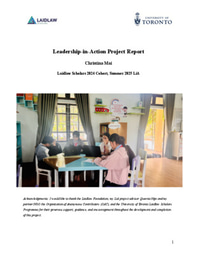


Please sign in
If you are a registered user on Laidlaw Scholars Network, please sign in